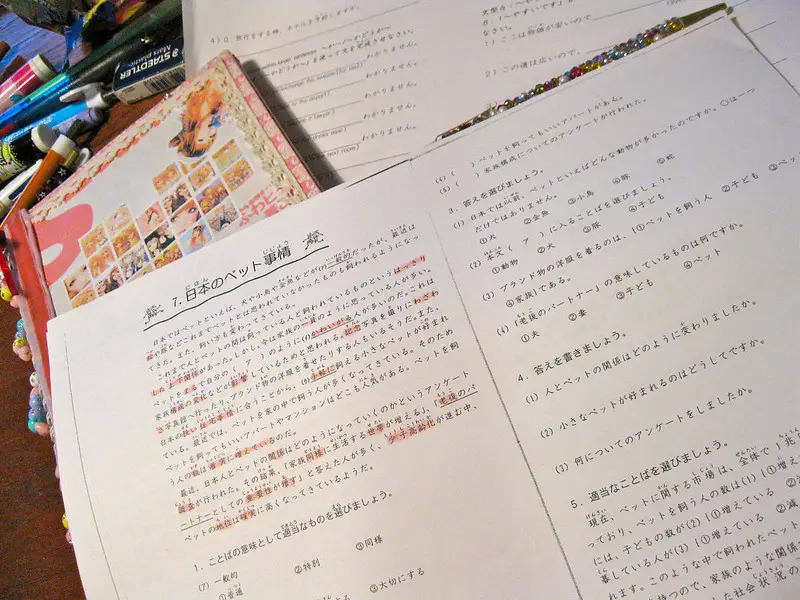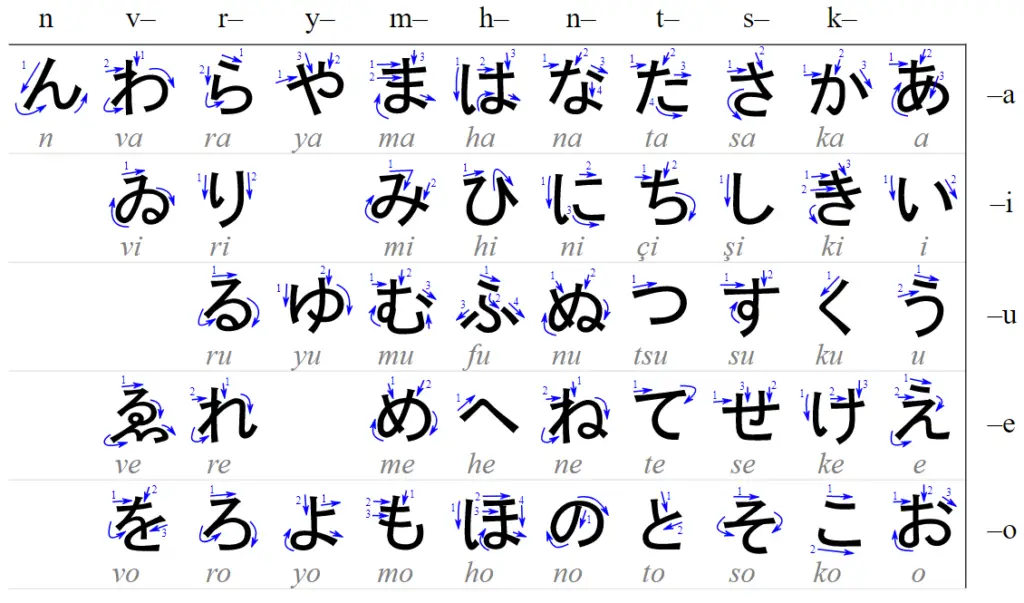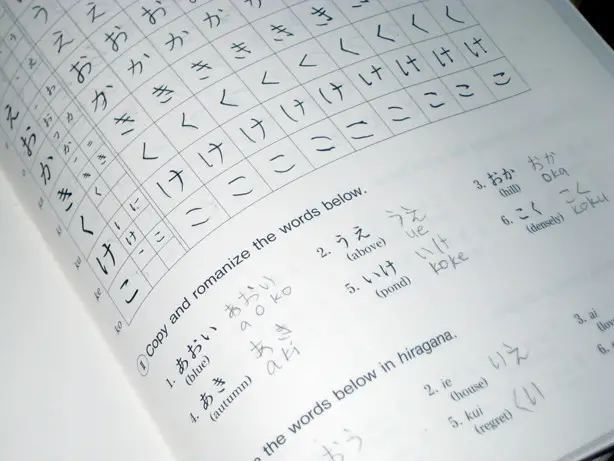
Best Way to Learn Japanese Including Tips and Tricks
Learning a new language is never a walk in the park. But it can be worth your while to learn Japanese if you live in the country or are planning to.
Japanese is considered to be one of the most difficult languages to learn. But if you approach it the right way, you can soon grasp it. Taking an online course is a great option to get started. Apart from this, there are several ways to aid your learning and gain proficiency.
Quick Navigation

Take an Online Course
Taking an online course can really give a boost to your willingness to learn. It can help you keep on the learning track. A good online course can guide you step by step so that you don’t feel overwhelmed by a new language. A well-structured, comprehensive course can be your best bet to learn Japanese efficiently. But how to choose from the array of Japanese language courses available on the market?
Rocket Japanese – A comprehensive online Japanese course
Rocket Japanese is one of the best online Japanese learning courses available. And with good reason, too. It has a very different approach to teaching Japanese compared to other programs. And this is what sets it apart from any other online course. Instead of focusing on complex grammar rules early on, the course demonstrates the rules. This makes learning interesting and does not make it monotonous or boring.

What is really impressive about Rocket Japanese is its unique course structure. Each step is designed to be easily understandable without becoming too complex. By using similar elements of the language in one chunk, the course becomes very effective. Each section is designed in such a way that all the information in it has the same context. This approach makes it easy to retain the course content.
Rocket Japanese gives the course taker access to a huge volume of comprehensive content. It covers different general areas such as sports and literature. It also covers areas that are very specific to Japanese culture.
So you do not just learn the language, you also learn the appropriate usage of the language in Japan. This includes Japanese formality, how to address people in Japan, business communication, and much more. The highlight of the course is probably its audio content. It contains speech in natural Japanese.
Overview of course content for Rocket Japanese
The four individual sections of the course are:
- Language and Culture – It contains the nuances of grammar usage as well as cultural references for correct usage.
- Interactive Audio – It contains natural Japanese speech. It also contains dialogues in Japanese.
- Reading and Writing Japanese – It has all the content you need to get started and learn Hiragana, Katakana, and Kanji.
- Critical learning – This is everything you need to get a basic understanding of the language. It teaches you the basic phrases and language-usage so that you can communicate basic level Japanese.
This course structure is very helpful if you want to live and work in Japan. It uses a holistic approach to teach you to read, write, speak, and understand Japanese. The course includes speaking activities and pronunciation practice, too. It provides step-by-step instructions that make learning seamless.
Rocket Japanese course can be accessed on Rocket Learning by clicking here.
Listen to podcasts
One of the useful tricks to learn a new language is to get used to how the language sounds. An effective way is to listen to podcasts in Japanese. There are several podcasts available on the internet which explain how the language is spoken. Correct pronunciation and enunciation of the words is an important aspect of learning Japanese. It is also helpful in understanding the language when someone else is speaking to you.
You can download a few podcasts that you like and listen to them any time you want. This way, whether you are driving or doing chores in the house, your learning is always advancing. NHK News Web is also a great option to read the text and listen to audio news. It has news in an easy-to-follow format especially for early learners of the language.
Here are a few other useful podcasts:
Learn Japanese from Books
Learning on your own using books might seem like a boring idea. Especially when there are other interactive methods available. However, sometimes, using a comprehensive guide to learn a new language can give you great results. The great thing about Japanese is that due to the popularity of the language, there are several high-quality books available.
From learning the basics of the language and grammar rules to learning Kanji, there are books available for every aspect of learning Japanese. Here are a few bestsellers on Amazon:
No products found.
Learn Hiragana using mnemonics

Hiragana is the Japanese phonetic alphabet. It also forms the basis of Kanji modification. So, learning Hiragana is an important stepping stone. But it can look quite complicated to read or write. A good trick is to look at each of the 46 letters and assign mnemonics to them. This is a surefire way to retain the letters and their sounds.
For example, the letter ‘た’ which is pronounced as ‘ta’ looks a little like the English alphabet letters ‘ta’. This way, you can look for different meanings in the symbols and remember the sounds!
Learn Kanji for a more effective Japanese learning

While the Hiragana represents phonetic alphabet letters in Japanese, Kanji are the symbols that represent words or ideas. Hiragana can be used to modify the Kanji symbols to enhance their meaning or give a different meaning.
Learning kanji can seem like a daunting task. After all, there are over 50,000 Kanji symbols! But, don’t worry. You don’t really need to remember them all. Only about 2000 are in regular use today. Learning Kanji might not be mandatory for speaking Japanese. But it will help you read Japanese better. It will also help you understand new words better.
Learning Kanji and remembering the meaning can be made easy with the help of mnemonics, too. There are several guides available that help you associate the symbol with a picture to help retain the meaning. Using flashcards is a great option to quickly memorize Kanji symbols.
Speak the language as much as you can!
This seems like a no-brainer. But it is so important to practice the language! Once you are able to construct basic sentences in Japanese, speak it as much as you can. If you have native Japanese people around you who can help, have a conversation with them. The conversation also makes you ‘listen’ to the language making it more effective.
On websites such as Meetup or My Language Exchange, you can find natives who can help you practice Japanese. Mutually beneficial calls can be set up so that both can practice their language skills! It is common for beginners to focus more on reading and writing Japanese. But don’t ignore speaking practice! It is recommended that you speak Japanese every day while you are learning.
Switch to Japanese entertainment

This tip works great when you are tired of studying. The methodical study of the language can sometimes get monotonous. If you feel you need a break, switch to something entertaining. Japanese anime, TV shows, or movies are very popular. If you are not already a fan, try out these genres of entertainment. Of course, go for content that is in Japanese, not translated or dubbed in English.
The best part is that Japanese entertainment is so varied, there is something for everyone. Whether you like action or romance. Or you just want to watch some silly game shows. You can always find something to suit your taste or your mood. Just use your leisure time to further your language skills. If you have just started out learning the language, choose shows with subtitles. Even Japanese video games can help you learn to read and speak!
One word – Karaoke!

While we are talking about entertainment, how can we forget Karaoke? This insanely popular Japanese entertainment is great to have fun and learn some language skills, too. And Japanese songs are fun. So, sing away! And while you sing and make some friends, it’ll be a great way to further improve. By actually having conversations in Japanese, of course!
Join a Japanese speaking group

This is a great way to practice your Japanese. It is also a good option to exchange learning tips and stay motivated. You can use social media to mobilize a group of like-minded Japanese language enthusiasts. Or you can search for existing groups and join them. It can really be a great experience to join such a group and help you along your learning journey.
There are Japanese associations in major cities of other countries such as the US, Australia, and the UK. You can join these associations and attend the events. You can listen to speeches and engage in conversations with people proficient in Japanese. It also gives you exposure to Japanese culture. A quick search can give you the details of such associations near your location.
Read Japanese books

Once you are able to read Japanese, move to books. There are several graded Japanese books. You can start with the lower grades and move your way up. It will help you a lot in terms of word usage. It is also a great way to learn new words and become familiar with sentence structures.
If reading books seems like a chore, here’s a fun way to include reading in your learning regime. Choose from the wide array of popular manga comic books. From comedy to action to romance, you are bound to find something that you enjoy. And learning becomes so much easier when you add a bit of a fun element to it! Reading Japanese haiku (short poems) is also a fantastic option to hone your skills if you like poetry.
A few good books that you can refer are:
- First Japanese Reader Japanese Graded Reader (Japanese Edition)
- Short Stories in Japanese: New Penguin Parallel Text (Japanese Edition)
- Japanese Stories for Language Learners: Bilingual Stories in Japanese and English
Use Google Image Search

This is a great tip when you can read Japanese but are not able to understand a new word. Sometimes, the translation of the word doesn’t make sense. If this happens, simply use a Google image search for the word. It will not only make the meaning more clear, but it will also give you a glimpse into the Japanese culture.
Get some Japanese learning apps on your phone

Of course, you should invest in dictionaries, an online course, and other resources. But what to do when you need a quick reference on the go? As they say, there’s an app for everything! Find which one suits your needs the best. These are apps available that help you to learn Kanji, find a quick meaning, or even take short tests to track your progress.
A few useful apps that you can download are:
- Rocket Languages: Online Language Learning Courses
- Duolingo
- Learn Japanese Offline
- Download on Playstore here for Android.
- AnkiMobile Flashcards
- Write It! Japanese
Know your ‘sound effects’

Want to sound like you have been speaking Japanese for years? Learn the sound effects. Unlike ‘Pow!’ and ‘Ktang’ that find their use in English comic books, the Japanese language uses sound effects in regular speech. Feelings and meanings are accurately expressed in Japanese by using these sound effects.
For example, ‘wakuwaku’ is excited! And ‘perapera’ is for speaking fluently. There are thousands of such words in the Japanese language. Knowing these words is important to speak well and to understand the language better. Here is a video that talks about the top 10 onomatopoeia.
Use a good dictionary

A good dictionary can make a lot of difference. You can learn the wider meaning of a new word that you come across. You can also learn how to use it and the correct contextual grammar. It is a great way to enhance your vocabulary.
Of course, a Japanese to English dictionary (waei) is good to start with. But once you have developed a basic understanding of the language, you can also start using good Japanese to Japanese (kokugo) dictionary. An English to Japanese dictionary (eikoku) is also great when you are looking to use specific words in Japanese.
If you are serious about learning Japanese, it also makes sense to have a Thesaurus handy. It can help you with lots of similar words and expand your Japanese word bank. You can buy a few useful dictionaries or can use online dictionaries such as Weblio. The key is to use them every time you see a new word and write down the meaning in your personal notes.
Get a few workbooks for practice

If you want to be able to write well enough in Japanese, proper practice is a must! Buy some workbooks to practice your writing skills. Writing in Japanese might not be the easiest thing you have done. It takes a lot of diligence and perseverance. Practice the Hiragana alphabet and also Kanji symbols. Spend dedicated time for writing practice each day.
YouTube Channels for learning Japanese
Videos are a good way to add variety to your learning. They are good to break the monotony when you have been studying for long hours. Fun, informative video content that educates as well as entertains can be your quick fixes on your learning journey.
There is a huge amount of video content on reading and speaking Japanese. The videos also give a glimpse into the Japanese culture and what is considered culturally appropriate speech. The videos on writing are also very helpful. A few good channels on YouTube that you can check out are given below.
- Learn Japanese with JapanesePod101.com
- Learning Kanji
- Nippon Cat Japanese Lessons
- Game Grammar
- Dr. Moku – Language, Arts and Laughs!
Other tips to help you learn Japanese
Understand why you want to learn Japanese
Your motivation to learn Japanese plays an important role in sustained progress towards learning the language. You have a valid reason to learn Japanese if you have any or all of the requirements below.
- Want to have an immersive experience of the Japanese culture
- Interested in making Japanese friends
- Want to enjoy Japanese entertainment such as original anime and manga comic books
- Interested in studying or working in Japan
- You have a family member who speaks Japanese and you want to be able to converse with them
Knowing and writing down why you want to learn the language helps in staying focused. Remind yourself every day why you want to learn the language. A reminder of your motivation to learn can help you keep on the right track!
Consistency is key
For learning a new language, consistency is key. Japanese being one of the most difficult foreign languages to learn, it is easy to give up on learning mid-way. But a consistent learning plan can help you make consistent progress. As long as your language skills are even slightly better than today than they were yesterday, you are doing great! Learning a new language needs patience. Don’t get disheartened if it takes time.
Related Questions
How long does it take to learn Japanese?
It really depends on the person learning the language and the learning goals. It also depends on how much time you are willing to spend every day. According to the U.S. Department of State, Japanese is a Category IV language. This means is it very difficult to learn. The estimate is around 88 weeks to become fluent in Japanese. However, there are several examples of people who are able to learn the language much quicker!
What are the different certifications you can achieve in Japanese?

The Japanese Language Proficiency Test (JLPT) is the most widely recognized Japanese language certification. It is accepted worldwide. This test was started in 1984 and currently has 5 levels of proficiency. N1 to N5 are the 5 levels with N1 being the highest.
Is it worth it to invest in an online course to learn Japanese?
Investing in a good online course can really pay off if you are serious about learning the language well. A course such as Rocket Japanese can help you learn the language at your own pace. It can make learning fun and focused. In fact, you can check out the free trial they have before buying the course.
Conclusion
Even though it is categorized as difficult to learn, Japanese remains one of the most popular foreign languages in western countries. In fact, in a study conducted in 1997, it was found that even though there is some anxiety in students about speaking Japanese, they are quite enthusiastic about it.
Learning Japanese can be very rewarding if you plan to work in Japan. There is no quick way to learn a language. But with dedicated time allotted to learning and by being consistent, you can soon gain a working knowledge of the language. So, let the learning begin! And it might also help to learn about the different hand gestures in Japan when you actually start interacting with native Japanese. Here’s how!





